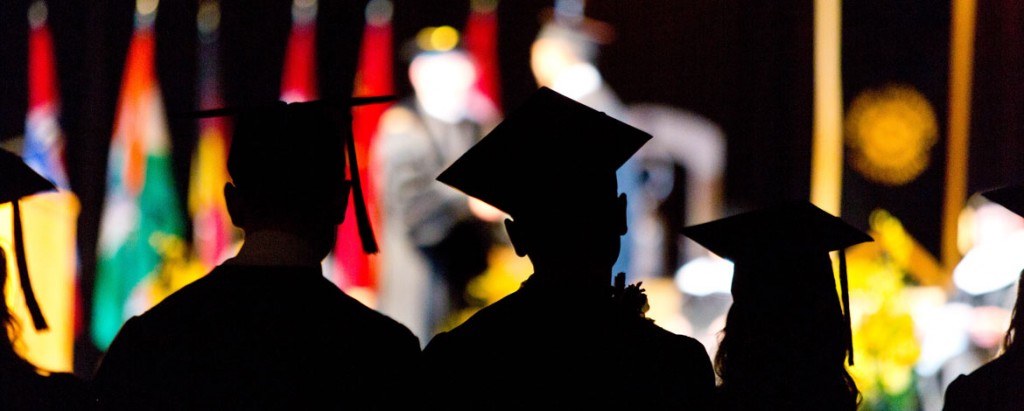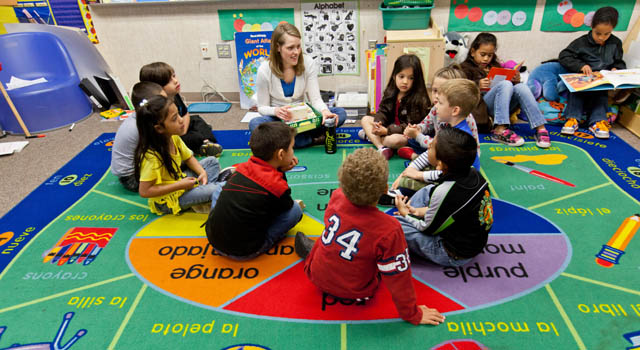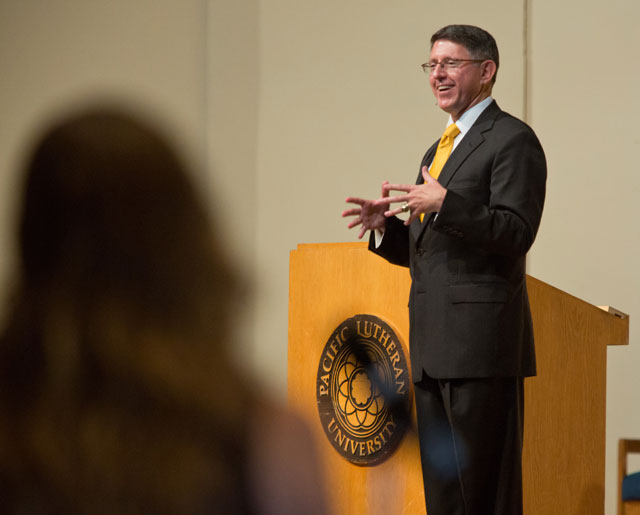Page 124 • (1,236 results in 0.105 seconds)
-

children and five grandchildren, his undergraduate degree was a new kind challenge. “I felt overwhelmed. And I really questioned myself,” Brass said. “‘Is this for me? Can I do this?’ But the military instilled the will to achieve.” Brass said that first semester felt like basic training: shock and awe. But he persevered — he graduates Saturday, earning a degree in kinesiology, health and fitness promotion. “I’m ecstatic,” Brass said. “It’s hard to conceive I am graduating with a bachelor’s degree
-
had laid the groundwork, Le Chambon was more than equal to the task – right in their own small corner of the world. While it is important to be global citizens concerned and engaged with the larger world, the training grounds for our ethical action starts in Parkland. How do we respond to the very real needs in our midst? What will we do when someone comes to our door, to my door, in need? A display from PLU’s “Day of Vocation” in 2016 Second, we can respond authentically from our own identity
-

another. They asked, and Schroeder said come up with a proposal – a bracket, how long games would go, how teams would be organized, outreach to other classes to find out interest – all the trappings of organizing a basketball tournament. “It’s cool to see them take ownership of their school that way,” Edwards said. “They are taking a leadership role they haven’t taken before.” The students made a proposal and presented their idea to Schroeder, who approved it. Needless to say, Edwards has a little
-

lost their jobs, homes and savings during the Great Recession, cultural products created during this time work to distance the middle and upper classes from the working and lower classes by emphasizing class as a cultural distinction versus an economic distinction. We use data from the popular television program Duck Dynasty. We content code each instance of social class defined by economic position and social class defined by cultural tastes and behavior. We pay special attention to overlap
-
both online and through peer mentors. These activities, of course, are designed to supplement the great work that all of you do with our students on a daily basis. 2. Graduate and Transfer Admission Programs In recent years, we have enrolled a series of remarkable first-year classes and, I am happy to report, that once again, tomorrow, we expect to welcome some 700 first-year students. We are also expecting approximately 210 transfer students and 120 new graduate students, and an estimated total
-

problems in addition to thinking in humanistic and artistic ways. PLU is at its heart and in its origin a liberal arts college. Beginning with the Master of Arts in Education in 1951, PLU began to offer professional and graduate degree programs that built on the foundation of the liberal arts education and provided more specialized or applied education and training. This is the position that PLU is in now. We have approximately 92 percent of our students in the undergraduate program and 8 percent in
Do you have any feedback for us? If so, feel free to use our Feedback Form.


